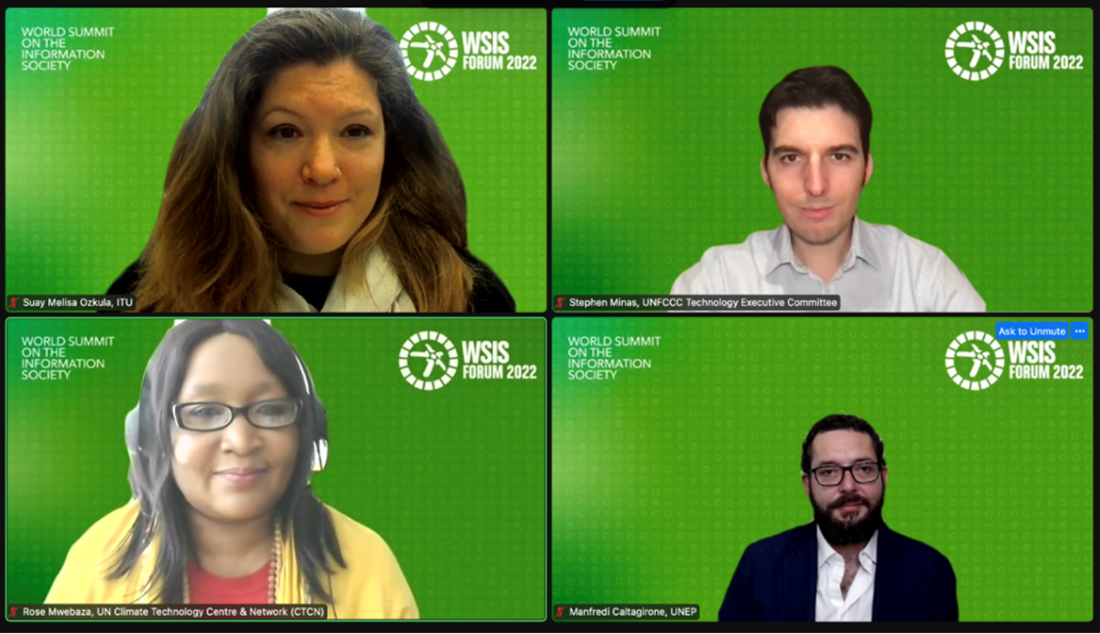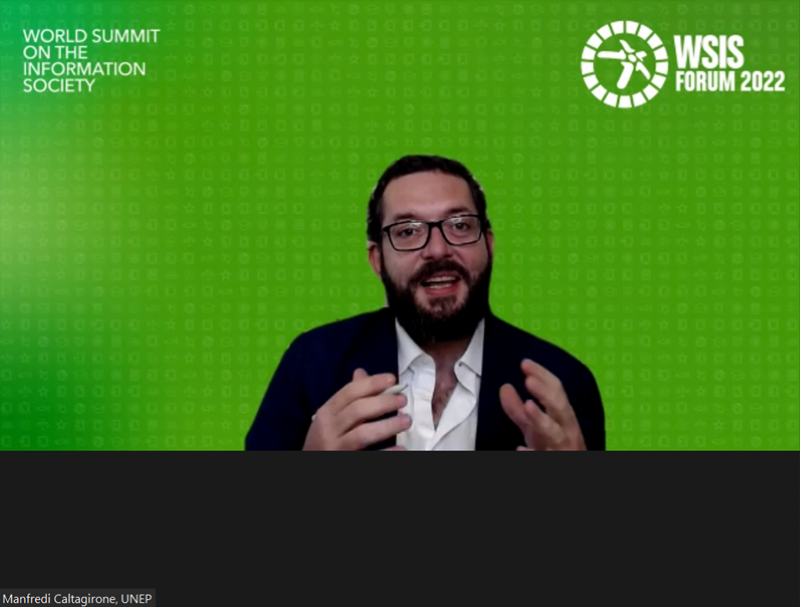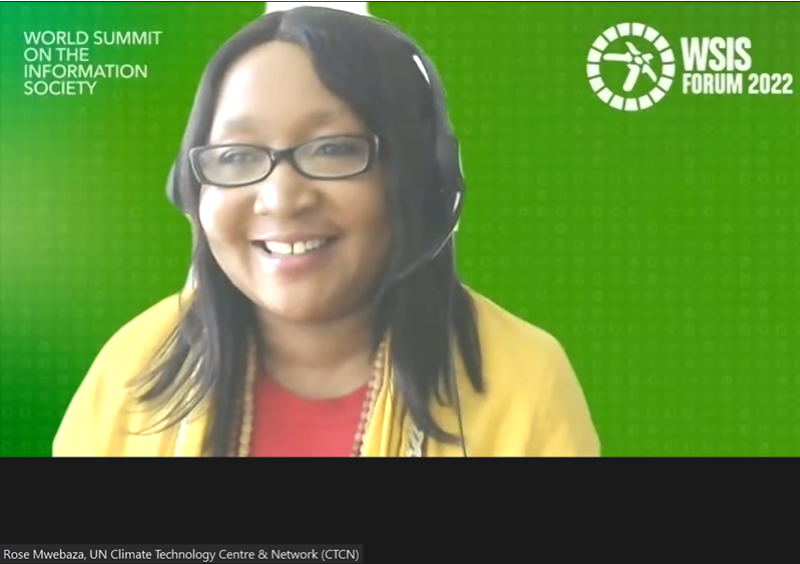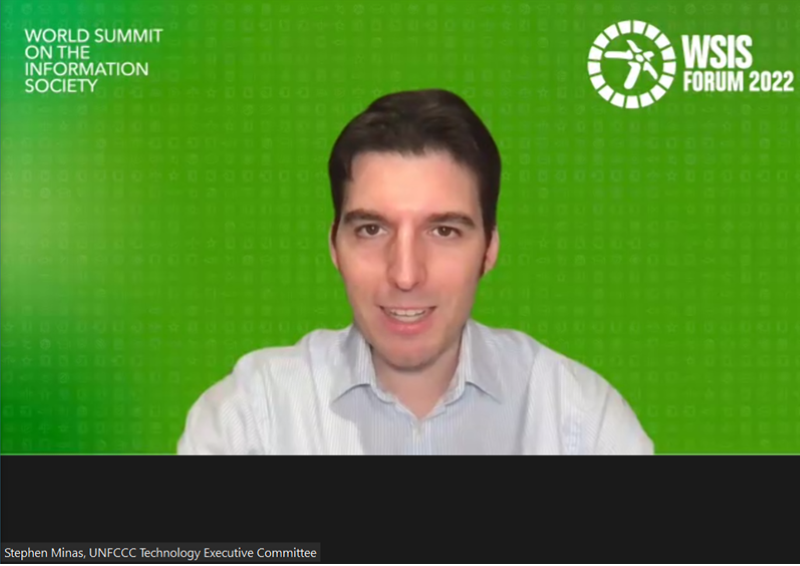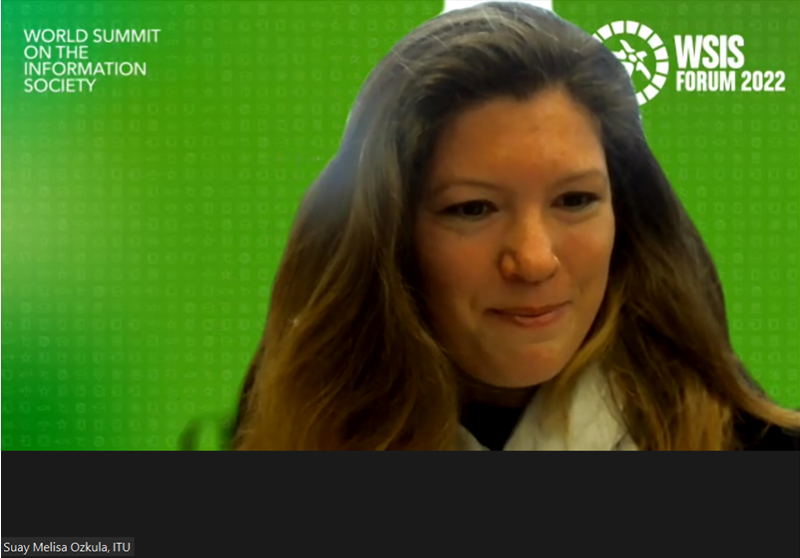ICTs and Climate Change
WSIS
Session 210
This WSIS Forum 2022 session will discuss the importance of use of innovative information and communication technologies in responding to climate change challenges and will highlight the overall effort undertaken by various UN agencies. Leading experts from ITU, UNEP, WMO, UNESCO, UNFCCC and CTCN will showcase examples of the use of ICTs in monitoring, stocktaking, analyzing data and its various applications acting in accordance with global climate action agendas.
Climate change refers to long-term changes in temperature and weather patterns. These shifts may be natural, but since the 1800s, human activity has been a major driver of climate change, primarily through the burning of fossil fuels (such as coal, oil, and gas), which creates heat-trapping gases. In order to prevent further ice melt, ocean warming, sea-level rise, and ocean acidification, it is important to increase scientific knowledge and develop research capacity, and use global multistakeholder inclusive platforms to discuss challenges of climate change and opportunities that ICTs provide, such as the WSIS Forum.
The information society holds promising solutions to even the biggest environmental challenges. Information and Communications Technologies have been a part of the mainstream global debate on climate change. Emerging ICTs such as artificial intelligence, machine learning, blockchain technology, quantum computing will soon prove to be even more indispensable in delivering innovative environmental solutions. But until now, it has been a struggle to turn the concept into bold policies.
What role can ICTs play in delivering green solutions? A powerful one, and industries are getting more creative with ICTs every day. They have been driving huge productivity gains for decades. The crisis is an opportunity to tap them further to lower energy use and reduce greenhouse gases across the entire spectrum of industry. The Internet and the technologies that underpin it are a powerful force for change. Digital technology gives us the ability to monitor the environment and reduce energy use in real time. How? High-speed broadband networks -- the backbone of our Internet economy -- enable a continual two-way flow of information between customers and utilities.
How do ICTs enable us to contribute to climate action? How do we transform this promising potential into reality? What are the key UN processes in combating climate change using ICTs? Which UN initiatives focus on making information technologies themselves greener? Why do we need to urgently identify and promote best practices deploying ICTs for environment gain? Finally, what is the importance of international collaboration in achieving SDG 13, are just some of the questions this panel will be tackling and with the opportunities for attendees to join the discussion, many more important issues on ICTs and Climate Action will be covered.

Manfredi Caltagirone leads UNEP work on methane emissions in the energy sector, and is acting Head of the International Methane Emissions Observatory. In UNEP, he was previously engaged in the establishment and operations of the Climate Technology Centre and Network under the UNFCCC. Prior to UNEP, Manfredi worked as policy advisor on climate technologies at the Italian Ministry for the Environment. He has been a Research Fellow at the United Nations Foundation and at the Belfer Center for Science and International Affairs at Harvard. Manfredi holds a J.D. from the II University of Rome, and a Master in Public Administration from the Harvard Kennedy School.
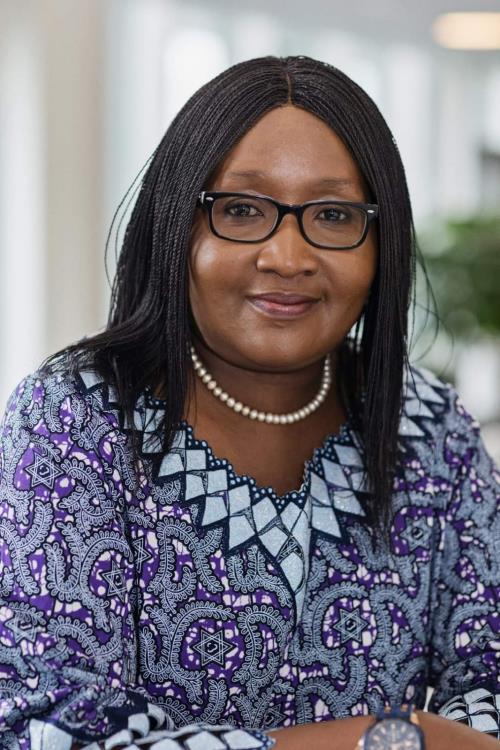
Dr. Rose Mwebaza (PhD) is the Director and Advisory Board Secretary, Climate Technology Centre & Network. She has over 15 years’ experience providing policy advice on a wide range of climate change, environment, and sustainable development issues. She has previously served as Chief Natural Resources Officer at the African Development Bank and held leadership positions within the UN Development Programme. Rose holds a PhD in Environment and Natural Resource Governance from Macquarie University, Sydney, Australia; a master’s degree in International Comparative Law (With a Certificate of Academic Excellence) from the University of Florida, U.S.A and a Bachelor of Law Degree (LL.B, Hons.) from Makerere University, Kampala, Uganda.
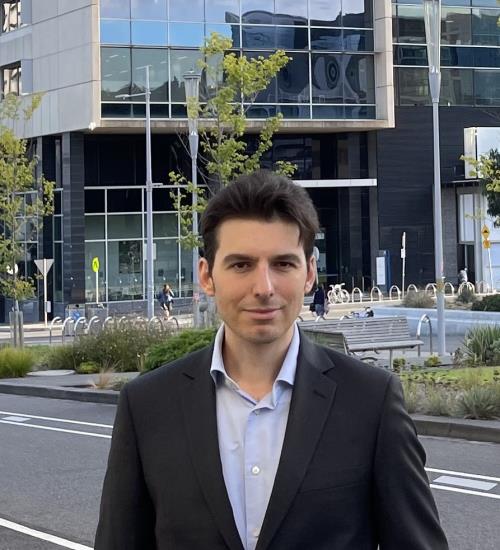
Dr Stephen Minas is associate professor at the Peking University School of Transnational Law, a member and immediate past chair of the UNFCCC Technology Executive Committee and a member of the Advisory Board of the Climate Technology Centre and Network. Stephen has worked, researched and taught in various areas of international and transnational law, with a focus on climate and energy law, sustainable finance and carbon markets.
Stephen is a participant in UNFCCC negotiations in the areas of climate technology and legal advice and has previously worked on climate and energy law and policy in several capacities. Stephen is a member of the IUCN World Commission on Environmental Law, a senior research fellow at the Transnational Law Institute, King’s College London and a member of the Chartered Institute of Arbitrators. Stephen is the co-editor of three books on the topics of climate diplomacy, the law of the sea and China’s Belt and Road Initiative.

Dr. Suay M. Özkula is a Marie Skłodowska-Curie Research Fellow in the School of International Studies at the Università degli Studi di Trento (Italy) and a Visiting Research Fellow at the ITU. Her current project looks at international experiences of digital political empowerment in crowdsourcing initiatives on climate change.
-
 C1. The role of governments and all stakeholders in the promotion of ICTs for development
C1. The role of governments and all stakeholders in the promotion of ICTs for development
-
 C2. Information and communication infrastructure
C2. Information and communication infrastructure
-
 C3. Access to information and knowledge
C3. Access to information and knowledge
-
 C4. Capacity building
C4. Capacity building
-
 C6. Enabling environment
C6. Enabling environment
-
 C7. ICT applications: benefits in all aspects of life — E-health
C7. ICT applications: benefits in all aspects of life — E-health
-
 C7. ICT applications: benefits in all aspects of life — E-environment
C7. ICT applications: benefits in all aspects of life — E-environment
-
 C7. ICT applications: benefits in all aspects of life — E-agriculture
C7. ICT applications: benefits in all aspects of life — E-agriculture
-
 C7. ICT applications: benefits in all aspects of life — E-science
C7. ICT applications: benefits in all aspects of life — E-science
-
 C9. Media
C9. Media
-
 C11. International and regional cooperation
C11. International and regional cooperation
-
 Goal 3: Ensure healthy lives and promote well-being for all
Goal 3: Ensure healthy lives and promote well-being for all
-
 Goal 6: Ensure access to water and sanitation for all
Goal 6: Ensure access to water and sanitation for all
-
 Goal 7: Ensure access to affordable, reliable, sustainable and modern energy for all
Goal 7: Ensure access to affordable, reliable, sustainable and modern energy for all
-
 Goal 9: Build resilient infrastructure, promote sustainable industrialization and foster innovation
Goal 9: Build resilient infrastructure, promote sustainable industrialization and foster innovation
-
 Goal 11: Make cities inclusive, safe, resilient and sustainable
Goal 11: Make cities inclusive, safe, resilient and sustainable
-
 Goal 12: Ensure sustainable consumption and production patterns
Goal 12: Ensure sustainable consumption and production patterns
-
 Goal 13: Take urgent action to combat climate change and its impacts
Goal 13: Take urgent action to combat climate change and its impacts
-
 Goal 14: Conserve and sustainably use the oceans, seas and marine resources
Goal 14: Conserve and sustainably use the oceans, seas and marine resources
-
 Goal 15: Sustainably manage forests, combat desertification, halt and reverse land degradation, halt biodiversity loss
Goal 15: Sustainably manage forests, combat desertification, halt and reverse land degradation, halt biodiversity loss
